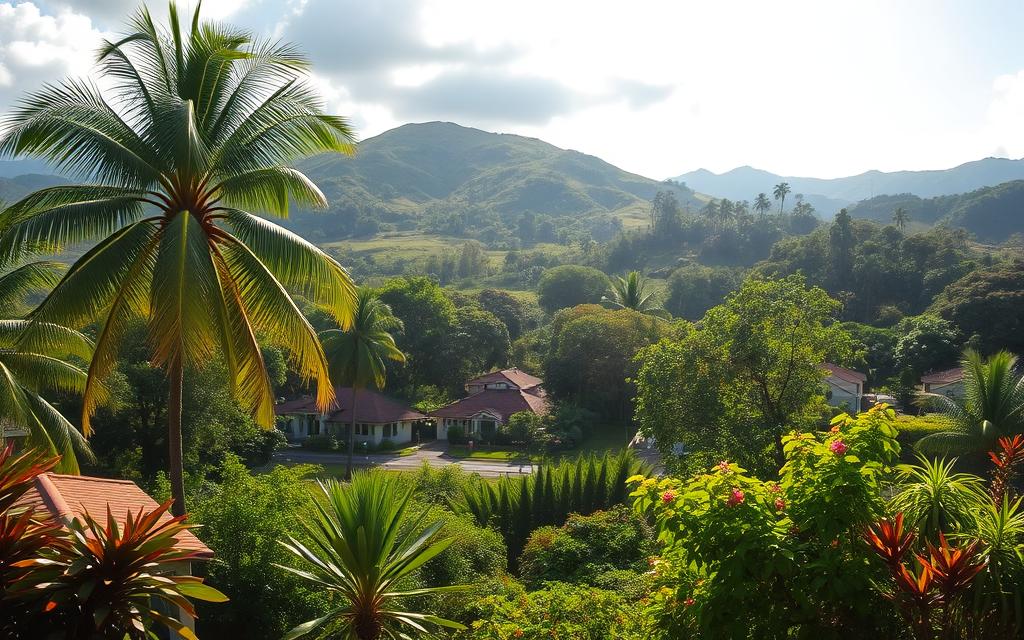What Happens If My Costa Rica Residency Is Revoked?

Did you know that over 10,000 foreigners apply for residency in Costa Rica annually? This tropical paradise attracts expats with its natural beauty, mild climate, and welcoming culture. Residency here offers a chance to improve quality of life through flexible options like rentista, investment, and permanent pathways.
Understanding the legal processes, such as the DIMEX registration and renewal requirements, is crucial. Late renewals can lead to fines, and failing to comply with rules may risk your status. This article explores the implications of residency revocation and how to navigate the challenges.
We’ll provide expert advice on preventative measures and remediation paths. Whether you’re a current resident or considering a move, this guide ensures you stay informed and compliant with Costa Rican immigration laws.
Understanding Costa Rica Residency Options

Costa Rica offers diverse residency options tailored to various lifestyles and goals. Whether you’re seeking financial stability, investment opportunities, or a permanent home, there’s a pathway for you. Understanding these options is key to making an informed decision.
Overview of Rentista, Investment, and Permanent Residency
The Rentista category is ideal for individuals with a stable income. Applicants must demonstrate a monthly income of $2,500 for at least two years. This option is perfect for retirees or those with passive income streams.
For investors, the Investment residency requires a minimum of $200,000 in real estate or other approved ventures. This pathway not only grants residency but also contributes to local development.
Permanent Residency is available after three years of temporary residency. It offers long-term stability and additional benefits, such as tax exonerations. This category is ideal for those planning to make Costa Rica their permanent home.
Quality of Life and Opportunities in Costa Rica
Costa Rica’s mild climate, rich culture, and stunning natural beauty make it a top choice for expats. The country’s emphasis on sustainability and community fosters a high quality of life.
Legal processes, such as DIMEX card registration, are streamlined to ensure compliance. Thorough documentation and adherence to immigration laws are essential for maintaining your status. For more details on the differences between residency categories, explore investor residency vs permanent residency.
With its welcoming environment and diverse opportunities, Costa Rica continues to attract families, investors, and retirees alike. Understanding your residency options is the first step toward building a fulfilling life in this vibrant country.
Common Reasons and Triggers for Revocation
Delayed renewals are a frequent cause of residency issues. Missing deadlines for DIMEX card updates or failing to pay renewal fees can jeopardize your status. Administrative errors, such as incomplete document submissions, also pose risks.
Noncompliance with regional requirements, like social security enrollment, can lead to revocation. Overstaying your visa or failing to attend mandatory appointments are additional triggers. Staying informed about regulatory changes is crucial to avoid these pitfalls.
Implications for Your Family and Long-Term Resident Status
Revocation affects not only the primary applicant but also their family. Dependents may lose their status, disrupting education, employment, and daily life. Future opportunities for permanent residency can also be compromised.
Legal consequences, such as fines or deportation, add to the challenges. Affected individuals should seek legal advice to address the situation. For more details on maintaining your status, explore how to get residency in Costa.
Staying proactive and informed ensures compliance with immigration laws. By understanding the risks and taking preventive measures, you can protect your residency and build a stable future in this vibrant country.
Step-by-Step Process for Addressing Revocations
Upon receiving a revocation notice, the first step is to review the reason for the decision. Common causes include missed deadlines, incomplete documentation, or noncompliance with immigration rules. Understanding the specific issue allows you to address it directly.
Next, schedule an appointment with the General Directorate of Immigration. This step ensures you can present your case and submit any required documents. Timely communication with authorities is essential to avoid further penalties.
Ensure all necessary paperwork is complete and accurate. This includes proof of income, updated DIMEX card details, and any other supporting materials. Paying the required fees promptly is also crucial to demonstrate your commitment to resolving the issue.
Legal Remedies and Alternative Residency Options
If your residency is revoked, legal remedies may be available. Consulting with an experienced immigration team, such as Quatro Legal, can provide tailored advice. They can help you navigate the appeals process or explore alternative pathways.
Alternative residency options, such as the Rentista or Investment categories, may be viable solutions. These pathways require meeting specific financial criteria but offer a fresh start. For more details, explore what happens if your residency is.
Families affected by revocation should also consider their long-term goals. Reinstating your status or pursuing a new application can provide stability and peace of mind. With the right guidance, you can rebuild your life in Costa Rica.
Insights from Immigration Experts and Legal Teams
Immigration lawyers emphasize the importance of timely action. Missing deadlines or failing to submit proper documentation can lead to serious consequences. Legal teams, such as Quatro Legal, recommend scheduling consultations to address specific issues.
Understanding the detailed registration and fee structure is crucial. Proper compliance with updated government regulations ensures smoother processes. Legal experts also advise maintaining accurate records to avoid future complications.
Adapting Your Immigration Strategy Post-Revocation
Revocation doesn’t mean the end of your journey in Costa Rica. Exploring alternative residency categories, like Rentista or Investment, can provide new opportunities. These pathways require meeting specific financial criteria but offer a fresh start.
Families should consider their long-term goals when adapting their strategy. Reinstating your status or pursuing a new application can provide stability. For personalized guidance, consult legal services in Costa Rica.
Proactive legal planning and expert advice are key to overcoming residency challenges. By staying informed and compliant, you can protect your future in this vibrant country.
Conclusion
Understanding the complexities of residency in Costa Rica ensures long-term stability and compliance. Revocation can disrupt your plans, but knowing the process and legal remedies helps restore your status. Staying informed about immigration laws and renewal requirements is essential for maintaining your permit.
Proactive planning and expert advice are key to safeguarding your residency. Whether you’re an applicant or a long-term resident, continuous monitoring of rules and documentation prevents issues. Families should also consider their goals and explore options like Costa Rica dual citizenship requirements for added security.
For personalized guidance, contact our team. We’re here to help you navigate the process and protect your future in this vibrant country.


